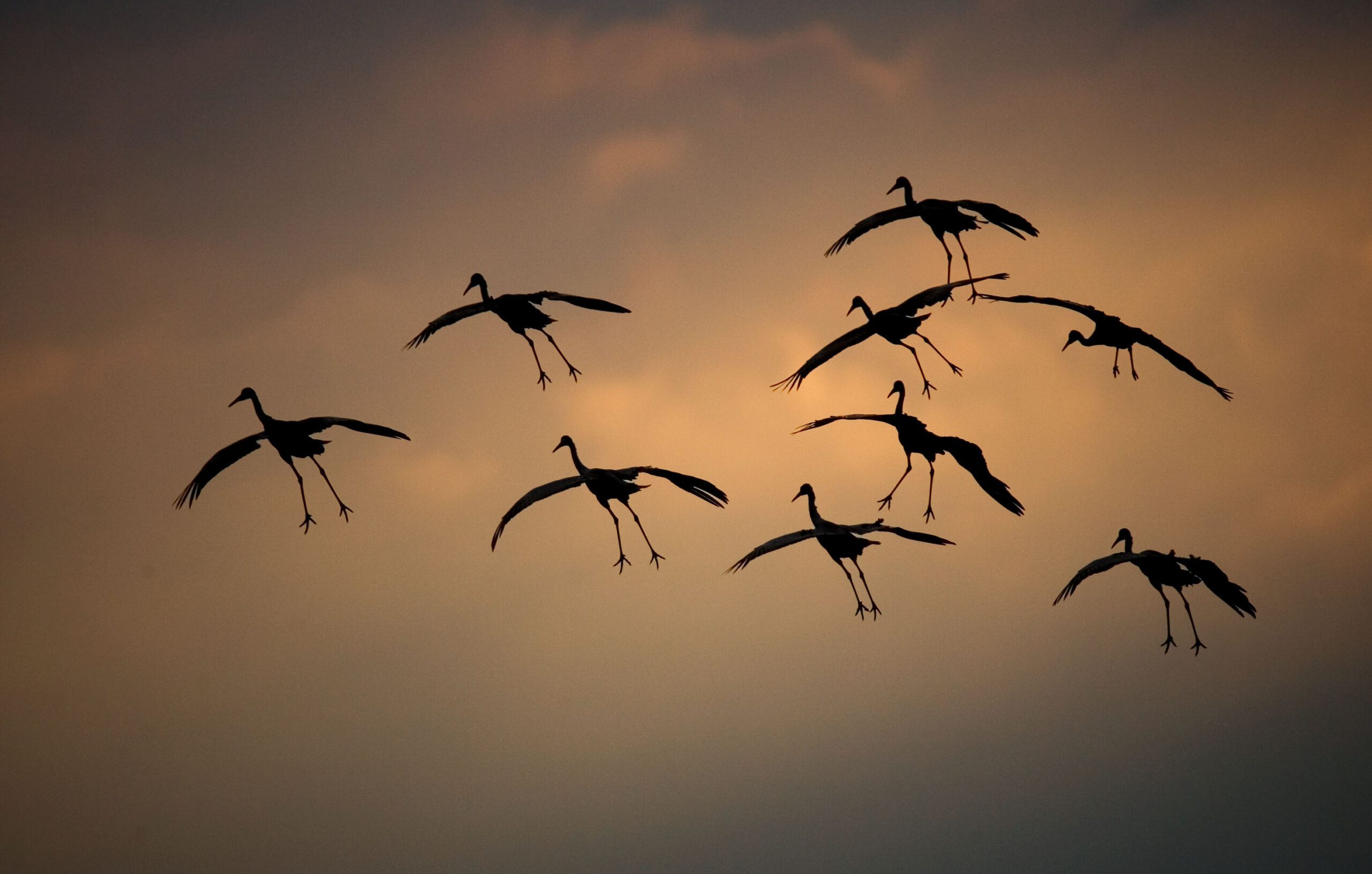Wisconsin Governor Tony Evers proposes $3.75 million in funding for Wisconsin’s farmers to prevent crop damage by cranes

February 5, 2025 – Madison, Wis. – This morning, Wisconsin Governor Tony Evers announced proposed budget investments of more than $80 million to support Wisconsin’s farmers, producers, and agricultural industries. As part of this 2025-27 Executive Budget proposal, the Governor included more than $3.7 million to reimburse corn farmers up to 50 percent of the total cost of purchasing seed treatment that discourages birds, especially Sandhill Cranes, from eating their seed.
“The International Crane Foundation applauds this initiative of the Governor’s office to support farmers who are experiencing crop damage,” said Dr. Rich Beilfuss, President and CEO of the Baraboo-based foundation. “We have long been committed to finding meaningful solutions to this issue both here in Wisconsin and globally. This budget proposal is an excellent step towards making this effective seed treatment more accessible to farmers.”
The International Crane Foundation has worked in Wisconsin’s agricultural communities for three decades to resolve the issue of crop damage by cranes. In partnership with Arkion LLC. the Foundation helped develop Avipel seed treatment, which has been available since 2006. Though this deterrent is effective, it is an added cost burden for farmers. The seed treatment is a harmless, non-toxic substance, originally derived from plants, that is applied to corn seeds before they are planted. Cranes avoid feeding on the treated, planted seed but remain in the field to feed on worms, insects, waste grains, and other food items.
The International Crane Foundation assisted with the field testing of Avipel in the early 2000’s in central Wisconsin to ensure its effectiveness on cranes. However, the Foundation has no financial stake in Arkion LLC or its products. The Foundation began its long-term, intensive research project to study Sandhill Cranes in this area in 1990—a project that continues today.
This budget initiative also reflects an important finding from the Legislative Study Committee on Sandhill Cranes, of which the International Crane Foundation participated as a core member. Though pro-hunt members prevented the measure from passing the committee, a standalone program to support farmers administered by the Department of Agriculture, Trade, and Consumer Protection is the clear route to making progress on this issue.
Advocates for a Sandhill Crane hunting season have long promoted hunting as the solution to crop damage. But through testimony provided to the Study Committee, multiple experts presented information that a crane hunting season would have no positive effect on crop damage.
Since our founding more than 51 years ago, the Foundation has been devoted to science-based conservation of cranes on natural wetlands and working lands. We remain committed to working with all partners to implement tangible solutions.
Photo: Sandhill Cranes in flight by Tom Lynn Photography
The International Crane Foundation works worldwide to conserve cranes and the ecosystems, watersheds, and flyways on which they depend. We provide knowledge, leadership, and inspiration to engage people in resolving threats to cranes and their diverse landscapes. From its nearly 300-acre headquarters in Baraboo, Wisconsin, the Foundation’s reach extends across the globe, with offices and staff in China, Uganda, Kenya, Zambia, and South Africa, as well as Texas. It works through strong partnerships with local organizations, governments, universities, businesses, and others in these regions. More than 135 staff and associates work with a network of hundreds of specialists in 50 countries on five continents.
The Foundation is committed to a future where all 15 of the world’s crane species are secure. Through the charisma of cranes, we envision a future where people work together for wild crane populations and the landscapes they depend on – and by doing so, find new pathways to sustain our water, land, and livelihoods. Visit www.savingcranes.org for more information and to support the work of ICF.